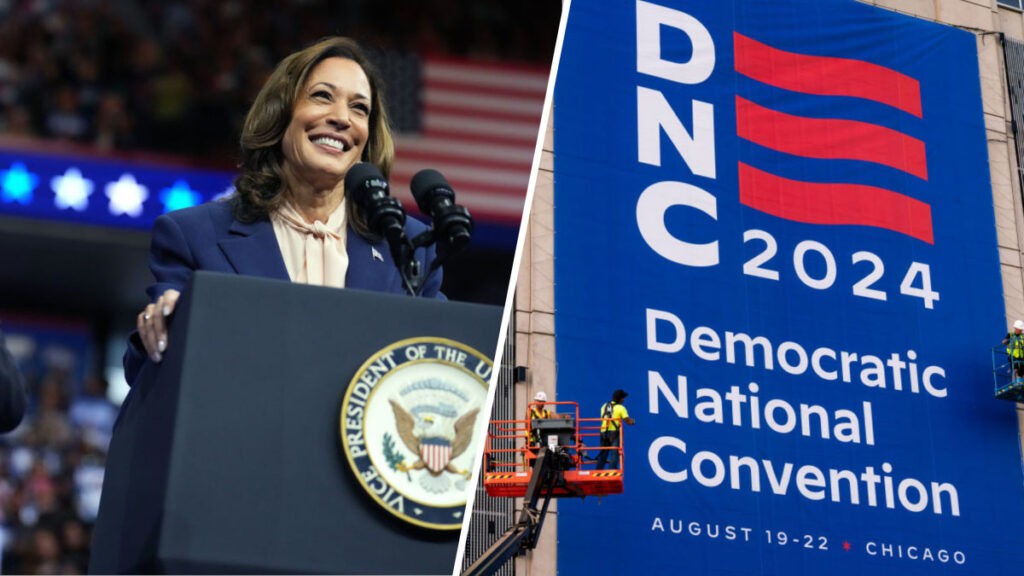In the last quarter of the Twentieth Century, we have seen a remarkable change in the nature of the national political conventions.
Younger folks may be surprised to learn that up until the 1970s, the political nominating conventions were events of great suspense. We did not always know who the party standard bearers would be until the floor vote was taken. There were often several contenders – each possessing a significant portion of the delegate vote count.
In addition to the major wannabes, three were “favorite son” candidates – usually a governor or senator whose only purpose in running for president was to pocket his state’s delegates as convention bargaining chips.
It would often take several votes before a winner emerged – and it was not always the front runner on the first balloting. Occasionally, it would be a “dark horse” who was not seen as a serious contender at the onset of the convention. In 1924, delegates voted 103 times over 16 days before Congressman and Ku Klux Klan member John Davis was chosen as the Democrat standard bearer. The influence of the KKK was so great in the Democratic Party that the convention came to be known as the “klanbake.”
In terms of vice presidential candidates, the public had no idea who would be chosen by the winner of the presidential contest. And the eventual selection of both the presidential and vice presidential candidates was determined by wheeling and dealing in the proverbial “smoke filled rooms.” There was virtually no showbiz-style entertainment.
The history of political conventions is noteworthy in understanding what we have today. They are no longer nominating conventions, but rather public relations extravaganzas for the already selected standard bearer – a dog and pony show. While party conventions once served an essential purpose, we could actually do away with them today.
Democrats put on a better show than the Republicans this year – although the GOP convention was successful in it own right. No longer involved in the selection of the candidates, the political parties use the convention to showcase the party and promote their candidates. Ii is pure Hollywood – more so with Democrats who have more support in Tinseltown. Hollywood producers and directors are often brought into craft the convention – and entertainment personalities are a key future. They are there for box-office appeal.
This year’s Democrat convention was more pomp than circumstance. It was more of a reality show than ever — and less of a political nominating convention. The most speculation centered on whether Oprah or Beyoncé would show up.
There were no surprises as to outcomes. The entire convention was carefully drafted to avoid any unanticipated activities. The themes – “not going back.” “Republicans are weird,” “The Republic is at risk” and “Democrats love America.” Other than socialist Senator Bernie Sanders’ litany of radical left wing proposals, there was very little addressing of issues. Only empty pledge gifts under the tree for every constituency. Taboo subjects – immigration, crime, inflation and Harris’ past record – were notable by their absence.
(Incidentally, there was a moment of Irony in Sanders doing his usual rant against billionaires immediately followed by billionaire Illinois Governor J.B. Pritzker, who mocked Trump claiming to be a billionaire by proudly announcing that HE (Pritzker) is a real billionaire.
Even the roll call was an unnecessary charade. Delegates had nominated Harris in a virtual roll call earlier in the month. That is why they called what happened at the convention a “celebratory roll call” – pure theater with little meaning procedurally.
The entire convention was geared to one thing – to win over voters and improve polling numbers through imagery – lots of sizzle, but no beef. The Democrat convention was platitudes over policy
The greater emphasis was on defining Harris and Walz. For Harris it was more a matter of redefining Speaker after speaker gave high praise to her personality, character and general experience – but little attention to her stand on issues. In view of her own avoidance of press conferences, interviews and public statements since she emerged as the pre-emptive Democrat nominee, her only known record is of the things she said and did in the past – the things she hopes to erase from the public conscience. She has already flipped on such issues as fracking and Medicare for all.
Walz came to the convention as a clean slate in terms of public image. But he does have a record as a 12-year member of Congress and a term as Governor of Minnesota. Like Harris, the convention was scripted to focus on Walz the person – avoiding any talk of his far left record. According to the shapeshifters, Walz is just good ole “coach.” It is a redux of the Lunch Bucket Joe Biden myth – although Walz had a longer earlier career in private life than Biden. But with more than 16 years in high public office, he is hardly a political outsider,
The only person who delved deep into the issues was Sanders, His speech was the tiresome repetition of his far left socialist platform — Medicare for all (ending all private health insurance), corporate tax increases (which consumers will ultimately pay), Public campaign financing (handing control of election to the bureaucracy) and a minimum LIVING wage (a lot higher than others have proposed), increase teacher wages (which is a local issue) – among other things. Nothing so specific from Harris, Walz or the other scripted performed on the political stage.
The Democratic convention was what it was – a happy-face cheerleading event with little issue information. It was more of a coronation ceremony than a political nomination. As they say out west … all hat and no cowboy (or cowgirl in this case).
(The Harris acceptance speech will be covered in a subsequent commentary).
So, there ‘tis.
